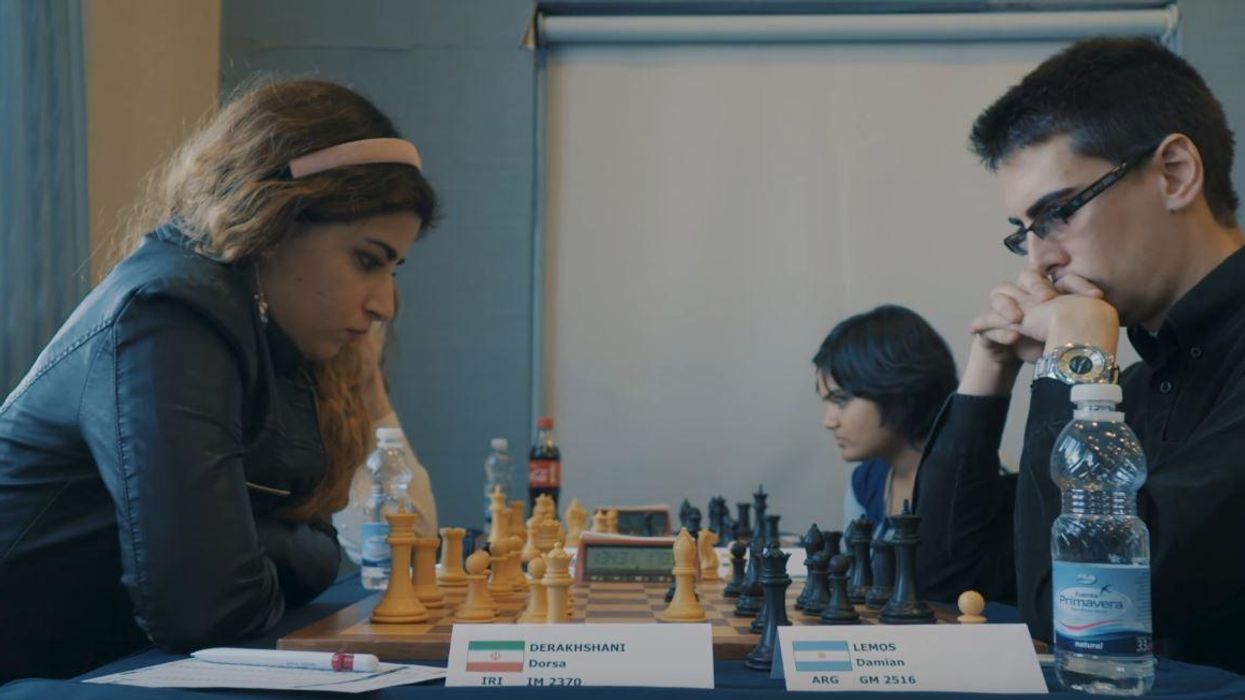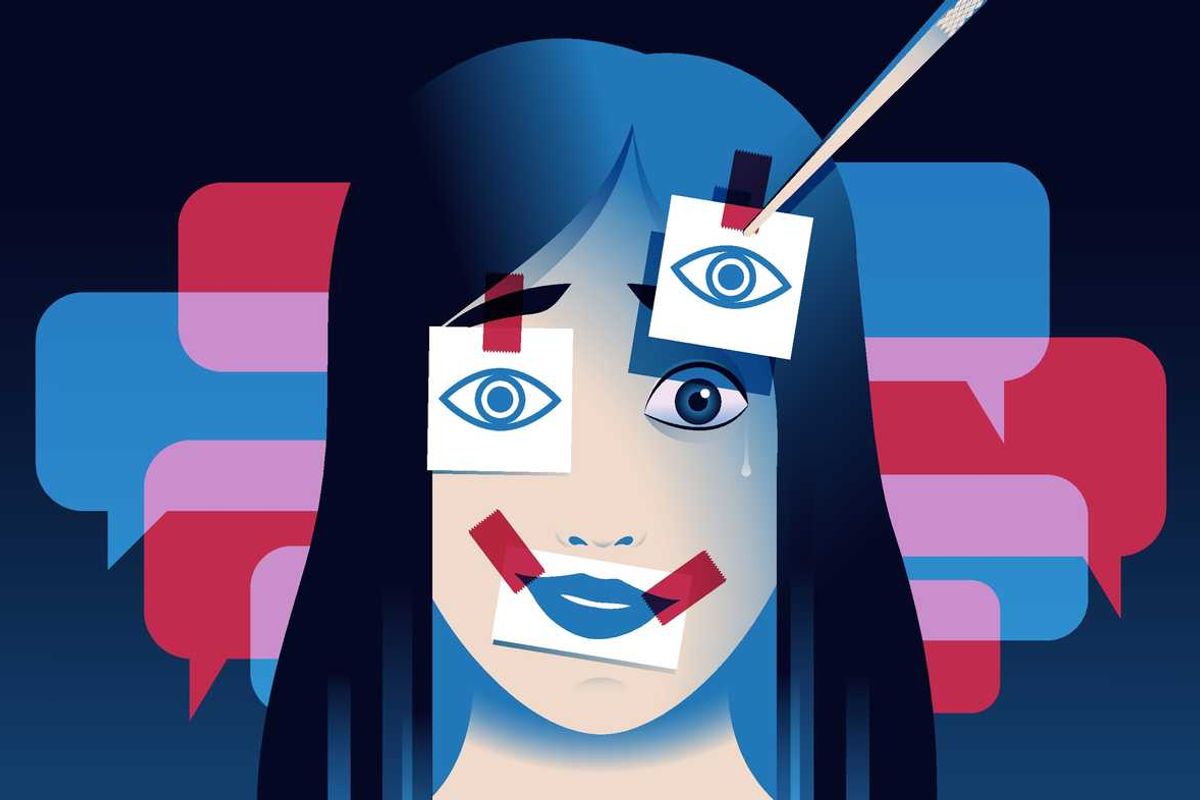News
Joe Vesey-Byrne
Feb 21, 2017

Picture:
Tradewise Gibraltar Chess Festival/YouTube
A world cass chess champion and her brother had been banned from competing in their home country because of the regime's religious puritanism.
Dorsa Derakhshani, aged 18, has already won the Asian chess championships three times in a row.
On February 1 chess' international governing body FIDE ranked her the 9th best under 21 female chess player on the planet.
During the Tradewise Gibraltar Chess Festival 2017 which finished on 2 February, Derakhshani did not wear a veil.
As a result the Iranian chess authorities have banned her from playing for their national team, or playing in games that happen inside the country.
Mehrdad Pahlevanzadeh, head of Iran’s chess federation, announced the move to local press.
World Chess Championship controversy
Iran's hijab rule has already come into conflict with chess players in recent months.
In February the World Chess Championships were due to be held in Iran, but the decision was met with controversy because of the enforced covering up of women's bodies.
In October US champion Nazi Paikidze-Barnes announced she would not attend the event on these grounds.
In January the female members of Sweden's government delegation were criticised for wearing the veil at the signing of a trade with Iran.
Israel
Derakhshani’s brother Borna, aged 15, has also been punished for actions at the Gibralatar games.
Borna played Alexander Huzman, an Israeli citizen.
Ahmad Salek, the deputy head of the Iranian parliament’s cultural commission said this contravened one of the republic’s core principles.
Borna has similarly been banned from future national games, and tournaments held in Iran.
Iran's theocratic sports
Iran has been a theocratic Islamic Republic since its revolution in 1979 overthrew the despotic monarchy and installed an Ayatollah (religious leader) as supreme leader, above the elected president and parliament.
All women in Iran are expected to wear loose fitting clothing and a head scarf in public.
Rather than being imposed from the outset, the hijab rule began as a recommendation, then was only mandatory in government buildings, before becoming compulsory for all women in public in 1983.
Dressing in a manner appropriate by the regime’s religious zealots is extended to sports persons competing outside of the country. Male footballers are often warned about taking selfies or being pictured with women not wearing the veil.
When Dorsa Derakhshani played she was not there as a representative of Iran.
Iran’s opposition to Israel has been hostile since 1979, and became worse still following the close of the First Gulf War.
It has strict laws about recognising the nation, and Iranians competing against players representing Israel.
In the past, Iranian athletes have feigned injury or illness to avoid a diplomatic incident of competing with Israelis.
The brother and sister's ban from Iranian competitions is presumably final.
Borna still resides in Iran, while Dorsa has lived in Barcelona since Summer 2016, in order to play for local team Montcada.
More: People are mad that Sweden’s ‘first feminist government’ wore head scarves in Iran
More: Iran just sentenced twelve people to jail because of their 'un-Islamic' Instagram photos
Top 100
The Conversation (0)













